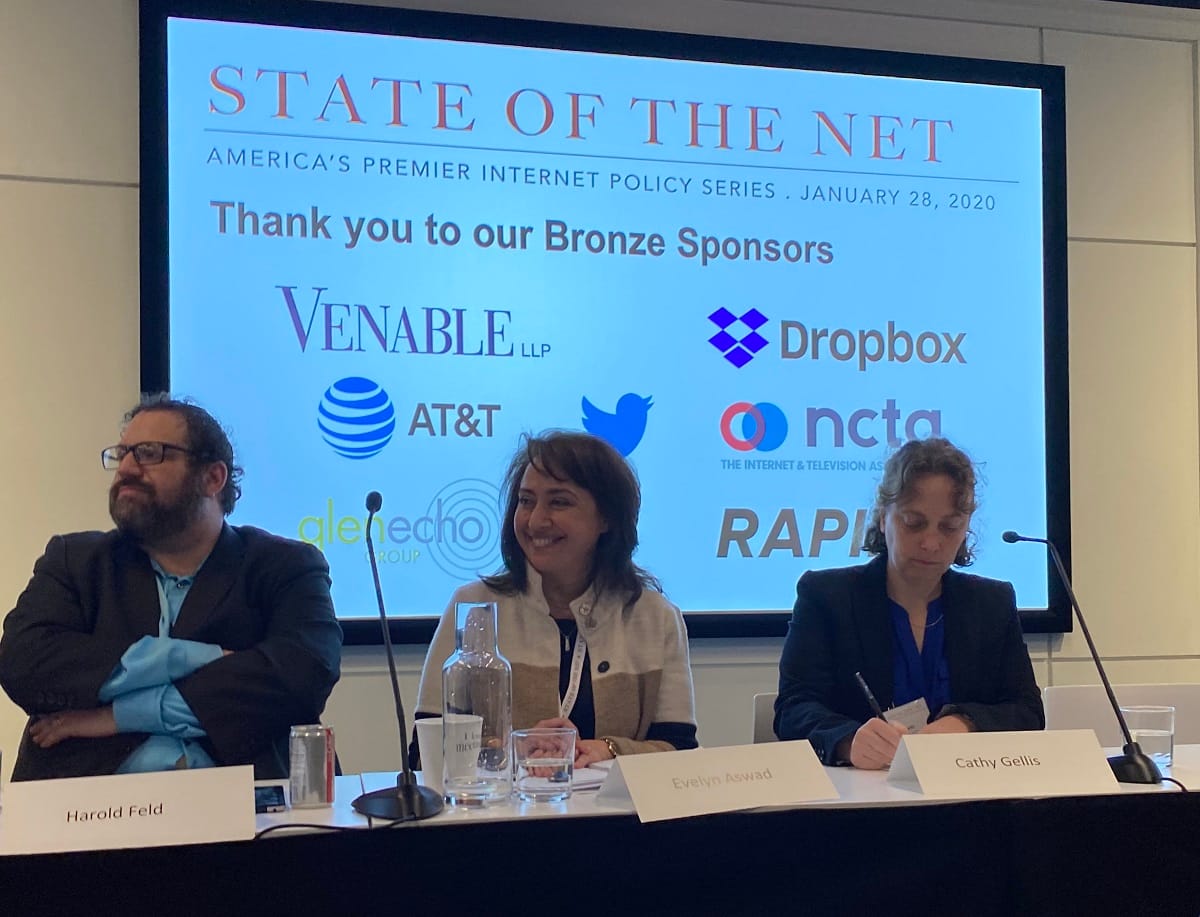State of the Net Panelists Fiercely Defend Section 230 as a Crucial Protection of Free Speech
WASHINGTON, January 28, 2020 – Section 230 of the Communications Decency Act may be controversial in some parts of this city, but at the State of the Net conference here, panelists were unanimous in highlighting the detrimental effects that would come from amendments to the law. In spite of bipartis

WASHINGTON, January 28, 2020 – Section 230 of the Communications Decency Act may be controversial in some parts of this city, but at the State of the Net conference here, panelists were unanimous in highlighting the detrimental effects that would come from amendments to the law.
In spite of bipartisan dissatisfaction with Section 230 among legislators, panelists on an online speech section fiercely defended Section 230 as a protection of free speech and small businesses with limited litigation resources.
Internet and intellectual property attorney Cathy Gellis explained Section 230 as holding people responsible for the “stupid stuff” they say online, but not the tools used to send their message—the platforms.
Gellis lamented the alteration to Section 230 in 2018 known as FOSTA-SESTA, the “Stop Enabling Sex Traffickers Act” and “Allow States and Victims to Fight Online Sex Trafficking Act.” FOSTA-SESTA curtailed Section 230 protections for platforms when the situation or content infringes on trafficking laws.
While all the panelists agreed that sex trafficking is a horrific issue, they did not understand how amending Section 230 could effectively address the epidemic.
Gellis said that after FOSTA-SESTA, Craigslist removed ads that seemed like they could be considered related to sex trafficking, for example, massage advertisements. But Gellis said Craigslist was taking down speech protected under the First Amendment.
Gellis said she believed that any changes to Section 230 would be “weaponizing censorship.”
Public Knowledge Senior Vice President Harold Feld said he was concerned that the conversation always swirls around Section 230 instead of finding the root of the problem. To Feld, it seems as though debates around the law turn into making “Google the police.”
Jesse Blumenthal, of the Charles Koch Institute, suggested that “it is much easier to blame the tool” instead of the real perpetrators. Free speech is crucial for a functioning democracy, said Blumenthal. The crimes that politicians want to stop through Section 230 are already punishable under federal laws, said Blumenthal.
Blumenthal recommended that tech companies stay away acting in ways that appear to be overreaching. Instead, let the government and law enforcement authorities handle crimes that tech should not, while still being transparent in their own enforced platform rules and regulations.








